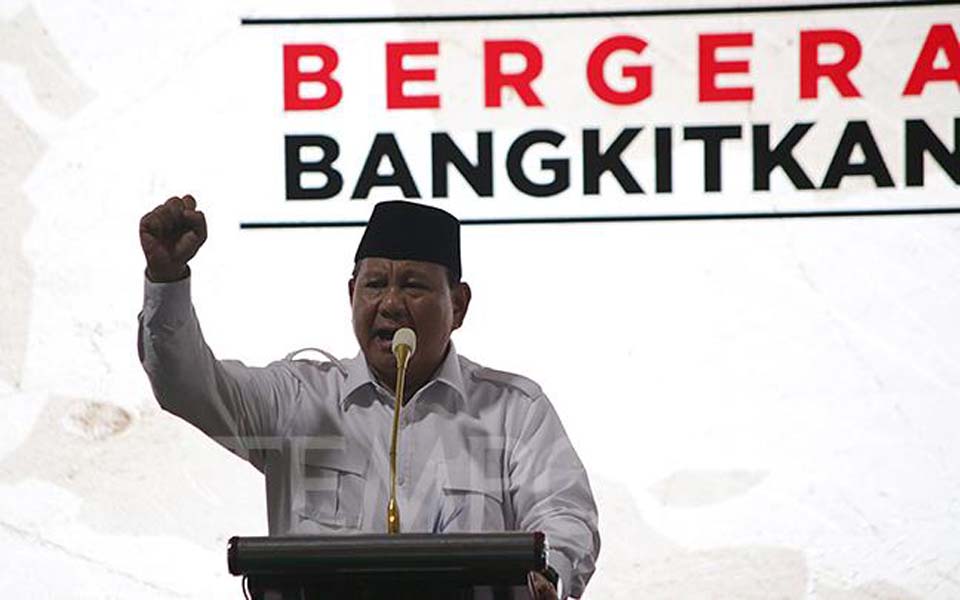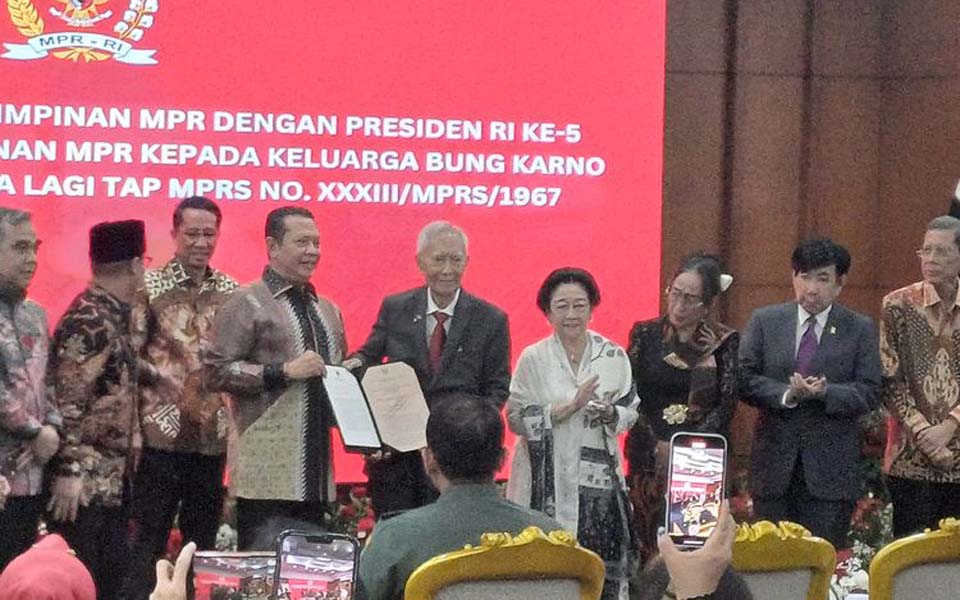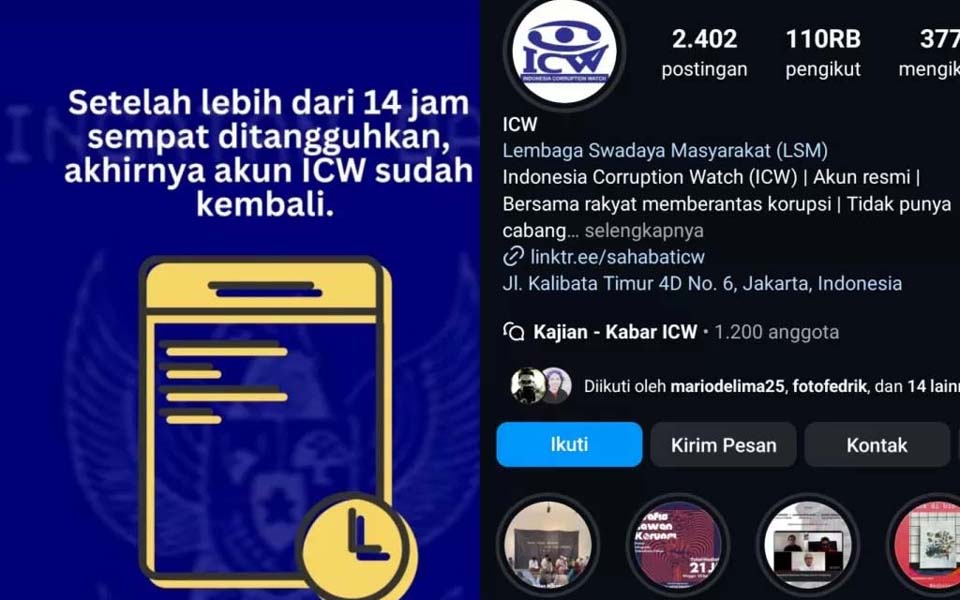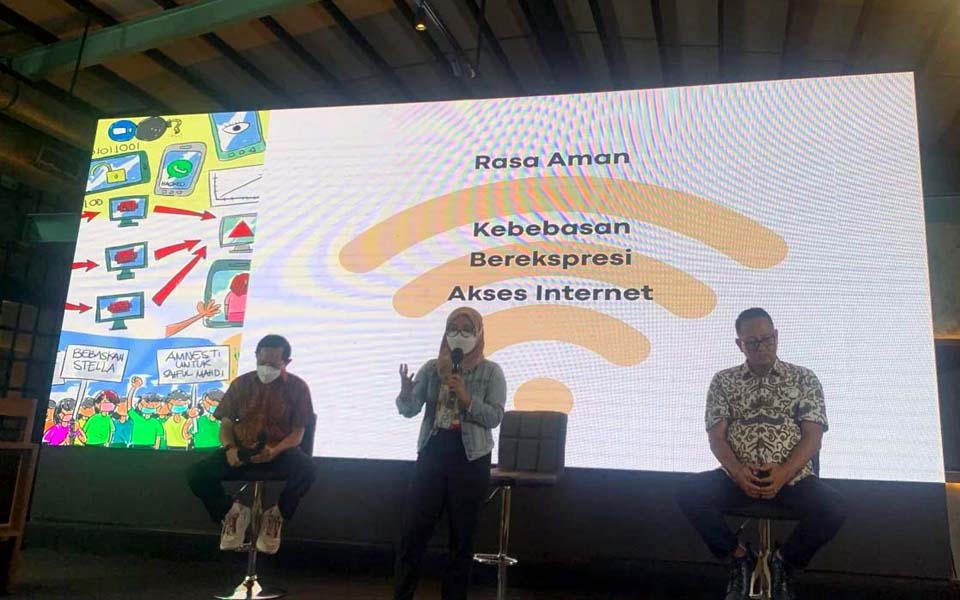Jakarta – There has been much discussion on the Indonesian Communist Party (PKI) of late. This has raised the question of why discussions on the organisation which has been banned in Indonesia since 1966 has emerged in the month of May.
Usually, discussion about the party – which was obliterated by Suharto’s New Order regime – usually increases when there are Betrayal of the September 30 movement/PKI commemorations at the end of September which are known as G30S/PKI.
Big data consulting company Drone Emprit and media intelligence service Media Kernels Indonesia founder Ismail Fahmi has analysed how the PKI narrative has been enlivened in May and who exactly has been pushing it on social media. According to Fahmi, discussions on the PKI issue have risen significantly on May 23 with a total of 32,000 tweets.
“The issue grew significantly on social media on May 23, but not in the online media”, said Fahmi via his Twitter account @ismailfahmi on Tuesday May 26.
Between May 22 and 25 there were two big discussion clusters on the PKI. Several of them included top influencer accounts such as the one belonging to Suharto’s youngest son Tommy Suharto on the account @tommy_soeharto, Islamic preacher and leading 212 Alumni Brotherhood (PA 212) member Haikal Hassan on the account @haikal_hassan, Indonesia Ulama Council (MUI) Deputy Secretary General Tengku Zulkarnain on @ustadtengkuzul, Greater Indonesia Movement Party (Gerindra) politician Fadli Zon on the account @fadlizon and the accounts @lutfimuhammad008 and @plato_ids.
Small clusters meanwhile were generated by the accounts @_digeeembok, @eko_kuntadhi and @ferdinandHaean2.
“Between these two clusters there were mid-level accounts such as @Dandhy_Laksono, @sejarahRI and @historia_id”, tweeted Fahmi.
Fahmi revealed that there were five top narratives that were played up by top influencers related to the dangers of the PKI which were most re-tweeted.
Several of these narratives were about the PKI attacking the Gontor (Islamic boarding school in Ponorogo), a Wikileaks report about China not being able to underestimate the number of Indonesian citizens linked to the PKI and claims that journalist Dandhy Laksono is a child of the PKI originating from Lumajang regency in East Java which asserted he was recruiting communist youth cadre in Indonesia.
Based on the top narratives which were being played up, Fahmi concluded that the PKI issue was able to grow in May because there was a story reporting that May 23, 2020 marks 100 days since the birth of the PKI and it would be commemorated by a mass meeting by PKI children in the Central Jakarta suburb of Menteng to discuss the PKI’s anniversary complete with the singing of the PKI’s symbolic song Genjer-Genjer.
This narrative then created tweets by pro- and contra-parties which emerged in a small cluster. One which was re-tweeted quite a lot was the narrative played up by the account @_digemeembok on the issue of the reemergence of the PKI being a manipulation polished up by the Suharto family alias the Cendana – referring to the Suharto family’s residence in Cendana, Menteng.
Meanwhile there were mid-level narratives, one of which was played up by online historical magazine Historia which wrote a historical piece on the growth and collapse of the PKI where May 23, 2020 was cited as being 100 years since the PKI emergence.
Fahmi admitted that there were not many reports in the online media about the PKI’s resurgence day. Several articles on the PKI were discussed widely on blogs. The remainder meanwhile with topics on the PKI mostly discussed the issue of a fake letter allegedly written by the MUI against corona rapid tests and the methods of the PKI.
“Certainly we need to be on watch for ideas which conflict with [the state ideology of] Pancasila and especially religion. However we also must be intelligence and careful about accepting every bit of information, so that our beliefs don’t blind us”, said Fahmi. (dal/DAL)
[Translated by James Balowski. The original title of the article was “Belum September, Isu Bahaya PKI Ramai di Medsos Sejak Mei”.]















